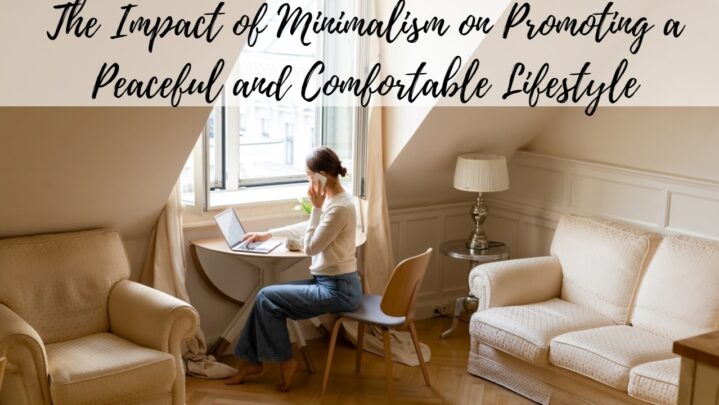People have become more aware of the harmful influence of consumerism and materialism on their mental health and well-being in recent years, which has fueled the rise in the popularity of minimalism. By lowering stress and improving overall satisfaction, minimalism fosters a tranquil and pleasant living.
One of the primary advantages of minimalism is that it decreases clutter in one’s life. This might be in the form of physical clutter such as material things or mental clutter such as diversions and commitments. Minimalists may focus on the things that actually matter through simplifying, such as relationships, hobbies, and personal improvement. This greater emphasis on meaningful activities and connections can lead to a sense of purpose and fulfillment, promoting calm and pleasure.
Another advantage of minimalism is that it encourages a more sustainable and ecologically responsible way of life. Minimalists may help to preserve natural resources and create a healthy planet by minimizing consumption and waste. This sense of duty and environmental awareness may also contribute to feelings of calm and fulfillment.
Minimalism also encourages a simpler and more purposeful way of life. Minimalists can live more frugally and decrease financial stress by focusing on the necessities. Finally, minimalism encourages a tranquil and pleasant living by lowering stress, enhancing happiness and fulfillment, fostering sustainability and environmental awareness, and simplifying one’s life. While it may not be for everyone, individuals who embrace minimalism frequently express feelings of calm and satisfaction they have never felt before.





